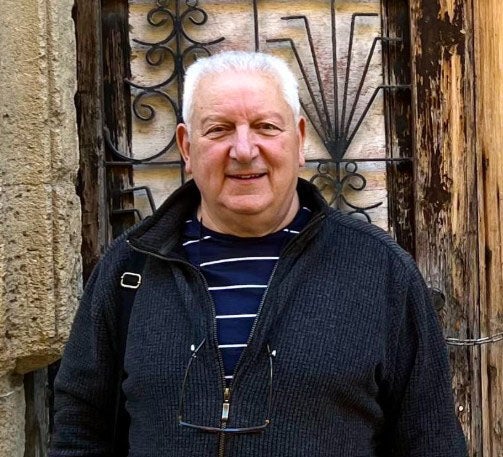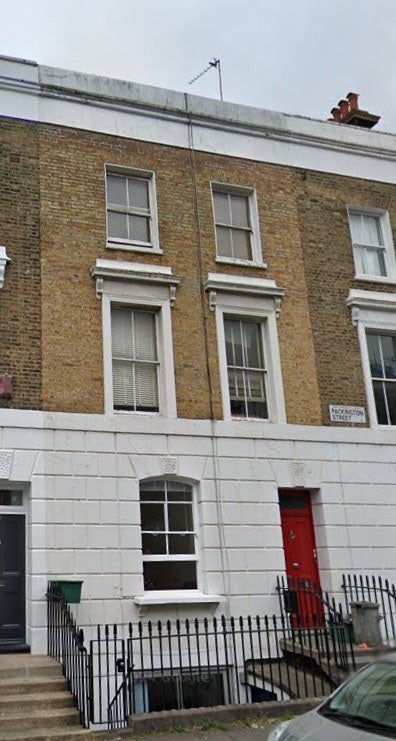A daughter disinherited from her mother’s £1.1m estate for failing to show sufficient “love and respect” has lost a court battle after alleging her older brother manipulated their mother’s final wishes to secure the fortune.
Dervishe Halil, who moved to London from Cyprus in 1952, died a wealthy 94-year-old in 2021, leaving a £1.1m estate.
Between 2013 and 2018, aged 86 to 90, she made four wills. Initially splitting her fortune among all children, she ultimately left everything to her oldest son, Dogan Halil, 74.
This followed a falling out between Dogan and his younger sister, Aysel Gencay, 72, after Aysel accused him of “slicing off” family property for his own benefit.
Aysel told Central London County Court that she was poleaxed by a 2015 handwritten note from her mother, which threatened disinheritance unless she apologised, “mended bridges” with Dogan, and showed Dervishe more respect.
Addressing the letter to Aysel and her other brother, Attila, their mother said: “Your actions have destroyed my life and home, your actions towards your brother Dogan are very bad and shameful – we saw nothing but goodness from Dogan to all of us”.
And three years later in 2018, Dervishe put her warning into effect when she drew up a new will disinheriting Aysel and Attila, also attaching a “side letter” which declared: “Aysel and Attila: None of the conditions in the letter I sent three years ago were fulfilled. Unfortunately, nothing has changed.
“You still do not talk to your brother Dogan, and you still do not show me love and respect. You destroyed my home and I deleted you from my will.”

Dervishe’s final 2018 will left her entire fortune to Dogan, prompting Aysel to sue him as executor of the estate, accusing him of exerting undue influence on their mum and poisoning her mind in order to cut her out of her inheritance.
Her lawyers argued that Dervishe either must not have properly understood that she was leaving everything to Dogan in her last will, or that it was the result of “undue influence” from her oldest son.
Her brother Attila was a co-defendant along with Dogan’s wife and fellow executor Susan, having been handed a one-third share of the estate by his brother and his wife under a deed of variation.
Aysel claimed her older brother “worked on” their mother so that she “surrendered her judgment”, and pressured her to sign over her fortune, insisting that the two letters spelling out her mother’s reasons for disinheriting her were in truth inspired by Dogan.
Her barrister, Peter John, argued that the will should be ruled invalid for want of knowledge or approval or by reason of undue influence or fraudulent calumny on the part of Dogan.
“The deceased had always indicated that she would deal with her estate on the basis of equality – informed by her cultural and religious background and her consistent approach towards her children throughout their lives,” he said.
“The deceased’s purported last will – the 2018 will – was, therefore, a shock to the claimant as the deceased’s only daughter, completely at odds with these statements, and also inconsistent with the relationship which she enjoyed with the deceased throughout her life.”
Her mum would not have been able to compose the 2015 or 2018 letters “without significant assistance” and the language used was “startlingly similar” to that used by Dogan in his correspondence, he argued.
Aysel, who lives in Turkey, said she was always close to her mother and claimed she would never have disinherited her, a step which went against all custom and family expectations.

Giving evidence, she claimed she flew to visit her from her home in Istanbul multiple times a year during her mum’s final years, telling the judge: “I remained extremely close to my mother all my life.”
But in his judgment, Judge Mark Raeside KC said Aysel had become “fixated” with trying to prove her brother was dishonest, when in fact he was a “dutiful son” who had done his best for his ageing mother.
She also remained convinced that he had “fiddled” her out of her share of lucrative real estate, accusing Dogan of “slicing off“ the basement of the valuable family property in Packington Street, Islington, for his own benefit.
“Aysel said that the side letters could only have come from Dogan, who was behind their untruthfulness,” said the judge.
“But the side letters are clear in what they say,” he added, while rejecting Aysel’s “fraudulent calumny” claim against Dogan.
“Aysel was wrong in her approach. She became fixated on this matter and her conduct was fundamentally wrong. She raised these matters quite wrongly.
“There was no dishonesty by Dogan. Dogan wasn’t responsible for any suspicion and therefore the case should be dismissed.”
Aysel’s unfounded belief that Dogan had sliced her out of her share of the basement property had coloured her judgment over the years, the judge noted, adding that Dogan had no involvement in drafting his mum’s will or the side letters.
Dervishe had attended her solicitor on her own, he observed, and her lawyer recorded that she seemed mentally sharp and aware of what she was doing.
When asked to explain her reasons for cutting out her children other than Dogan, she told her solicitor they were “not visiting her and not showing any interest”, said the judge.
Ruling in Dogan’s favour, Judge Raeside said: “I reject the assertion that the deceased had any assistance from Dogan with her will. The evidence makes clear he was simply a dutiful son.
“Both side letters were written in Turkish in the deceased’s hand, Dogan did not help her and had nothing whatever to do with them.”
He had only discovered the 2018 side letter accompanying his mum’s last will after her death, the court heard.
“I consider the assertion that Dogan was dishonest in his dealings to be misplaced and incorrect,“ he continued.
“He was not dishonest in any way, he always accounted correctly in respect of any accounts. It was most upsetting and surprising that Aysel continued at trial to continue to make these allegations.”
Rejecting claims that Dervishe lacked full “testamentary capacity”, he said that although Dervishe had dementia symptoms by 2020 she was of sound mind when she drafted her last will two years earlier.
The judge threw out all her claims, ruling that Dervishe’s last will of 2018 is valid.
